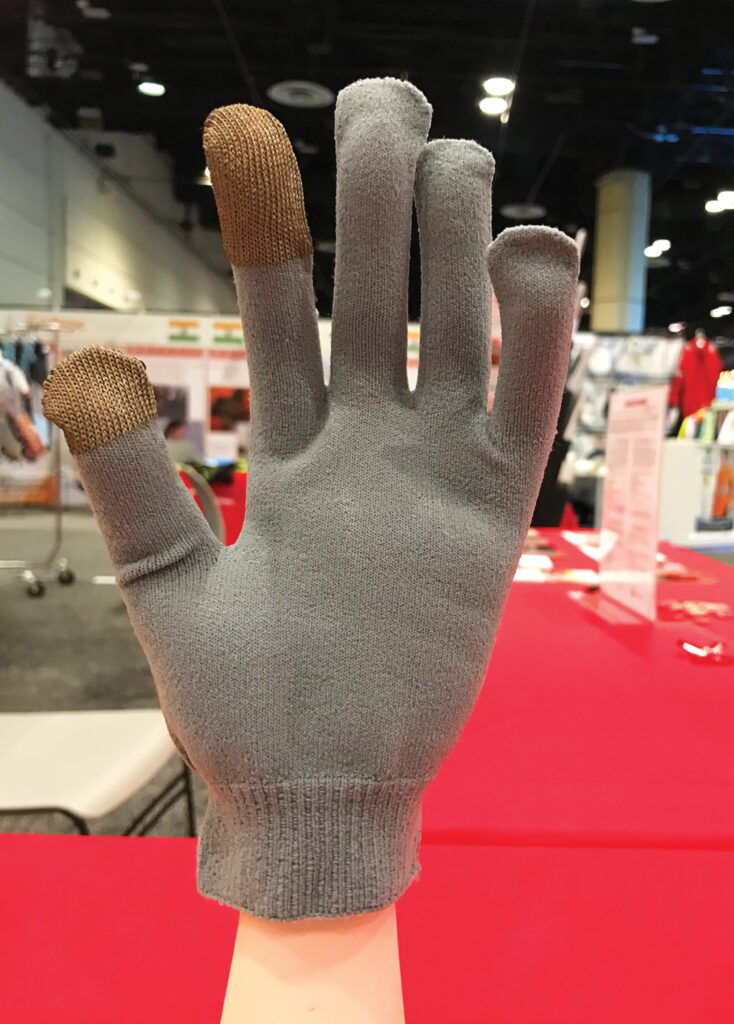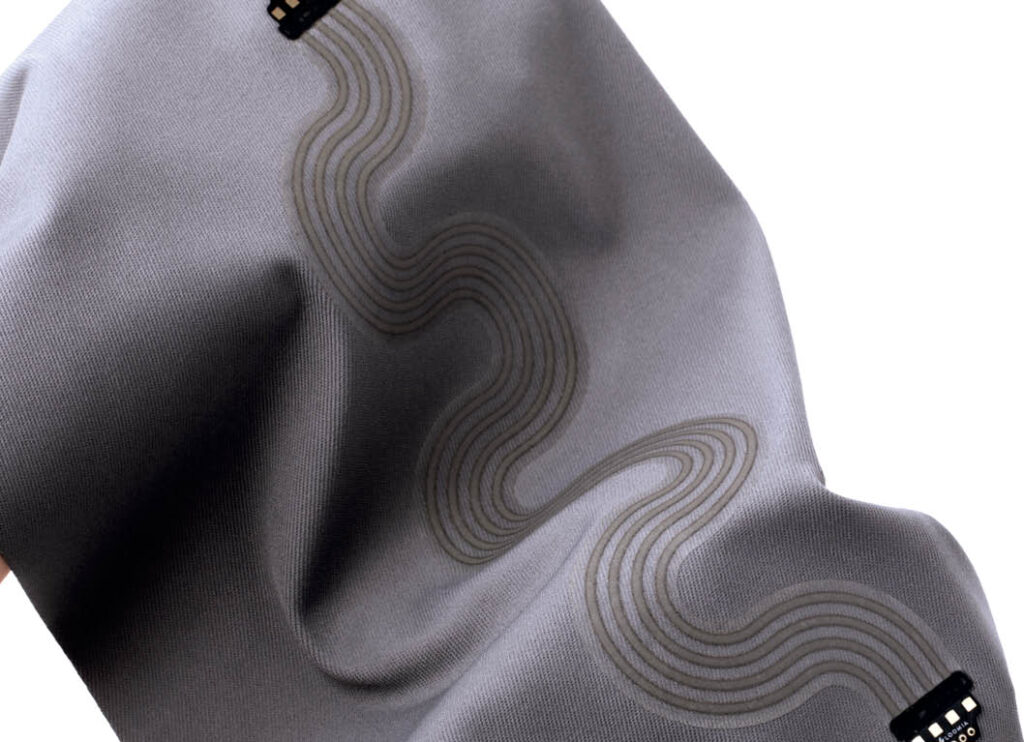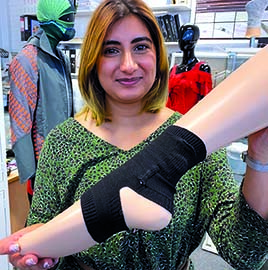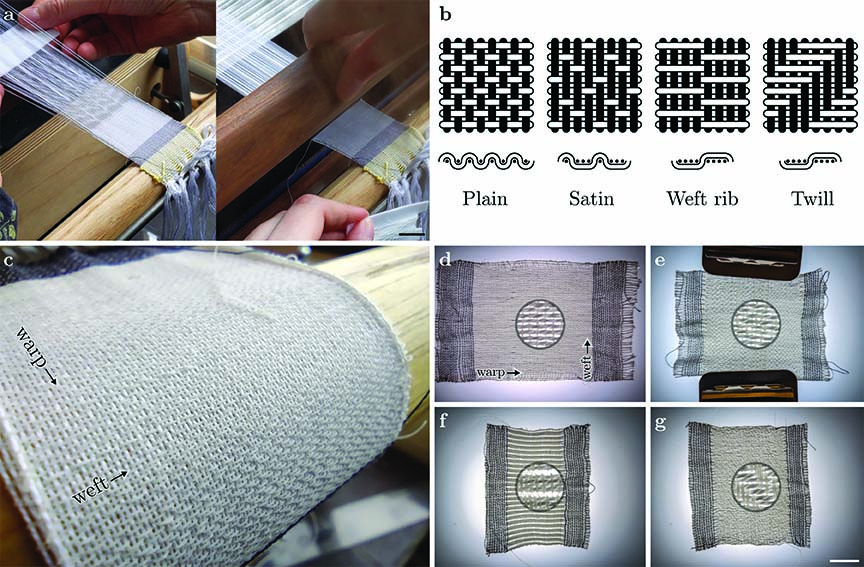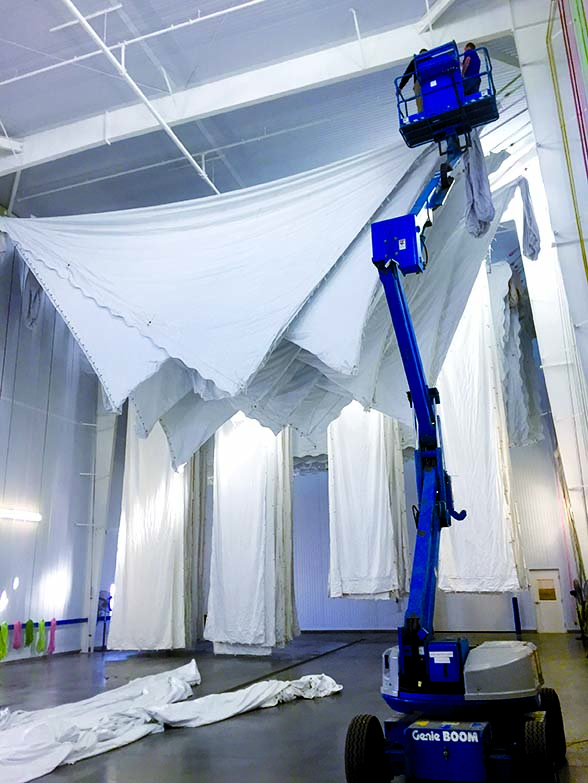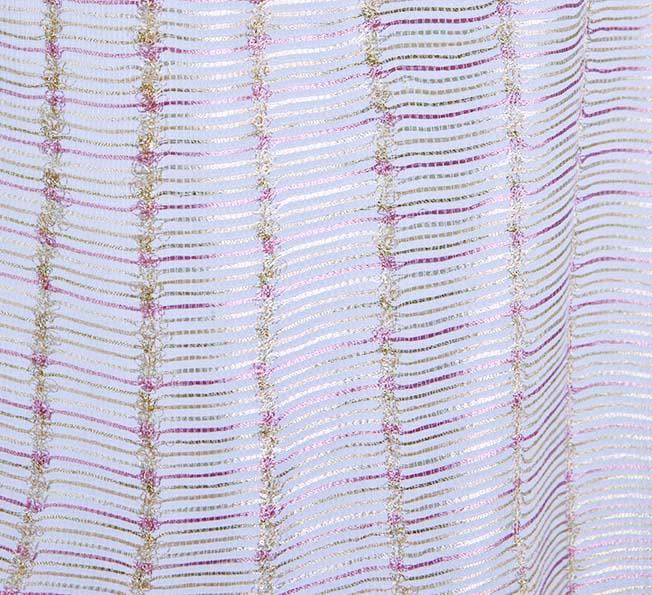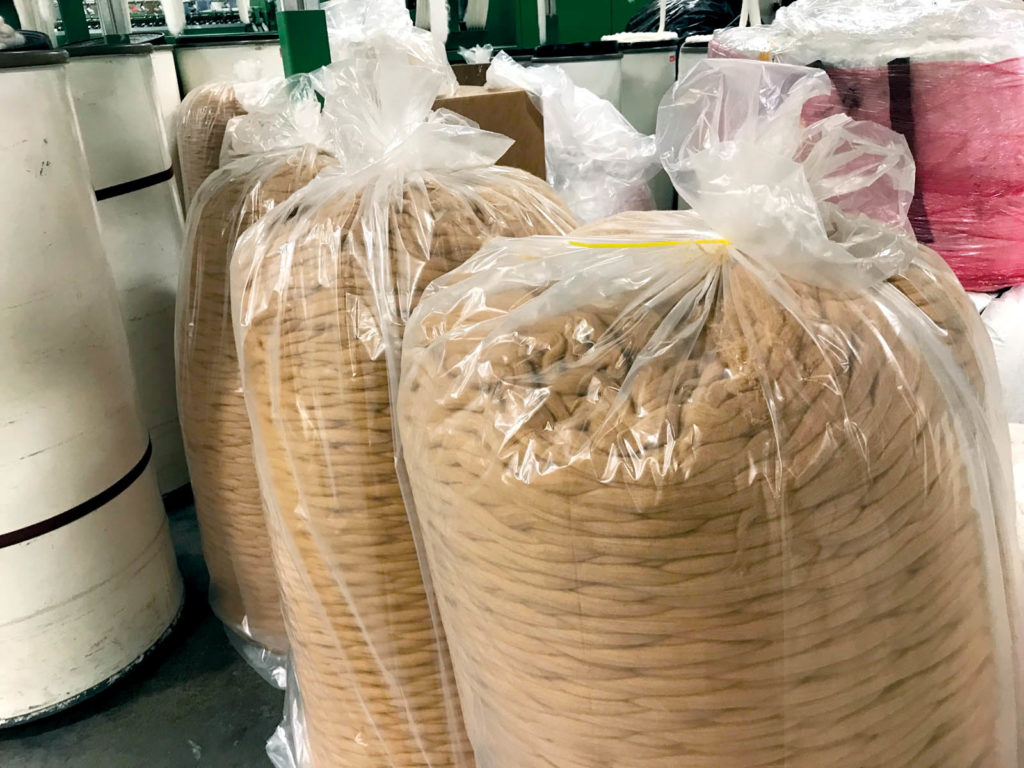Smart fabrics testing and standards under development
March 1st, 2024
A glove made on a Shima Seiki SWGN knitting machine on display at Advanced Textiles Expo 2023 in Orlando, Fla. The SWGN machine created the glove in 19 minutes at a speed of 1 meter (3.3 feet) per second, including a conductive yarn knit in the first two fingertips to allow the user to operate […]
Innovations in smart fabrics: Heating, cooling, bio-data collection and more via e-textiles
December 1st, 2023
A Loomia Electronic Layer (LEL) four-wire serpentine bus laminated onto knit fabric. The LEL was designed to be soft and flexible for use in smart textiles. Image: Loomia Technologies When is a jacket not just a jacket? When it can actually interact with the wearer’s body to warm or cool it or collect biometric information. […]
Spiders inspire smart textile fiber spinning method
December 1st, 2023
Drawing inspiration from how spiders spin silk to make webs, a research team from the National University of Singapore has developed a simple, efficient method to produce functional soft fibers that are suitable for smart textile electronics. Images: National University of Singapore In their efforts to develop a method to create soft fibers that are […]
Sock could evaluate fall risk
June 1st, 2023
Ph.D. candidate Zahra Rahemtulla with the over-sock that can predict near falls and potentially help health care providers assess a wearer’s fall risk. The motion sensor is encapsulated in resin and yarn so the sock can be washed like regular laundry. Photo: Nottingham School of Art and Design Researchers at the Nottingham School of Art […]
Researchers test heat-reactiveness of fabric
June 1st, 2023
The different patterns created for the materials testing. Photos: Aalto Research into reactive textiles goes on around the world. At Aalto University in Finland, researchers have developed textiles that change shape when they heat up, thanks to weaving in liquid crystalline elastomers (LCEs). The work was done in collaboration with the University of Cambridge in […]
Fabrics heat and cool the wearer based on the environment
May 1st, 2023
Researchers at Shinshu University in Japan have developed a new method of integrating phase change materials (PCMs) within fabrics that could heat and cool the wearer depending on the environment. Occupations in many industries require workers to shift between vastly different temperatures as part of their work. Apart from making their work uncomfortable, such temperature […]
Tips for keeping warehouses safe, organized and profitable
May 1st, 2023
Tents for Rent’s expansive warehouse allows company owner Daryl Sensenig and his team to use the warehouse space for washing, drying, repair and storage of tents and other rental items. Photo: Tents for Rent Today’s warehouses are no longer just for storage. From being a showroom of products to providing a space for drying operations […]
Smart textiles for health care and reducing accidents
May 1st, 2023
Knitted textile designs by Cassie Henderson address the need for functionality, comfort and strong aesthetic qualities in wearables. Photo: Cassie Henderson Smart textiles for health and well-being are becoming both more diverse and interconnected. Three key market segments—home health care, health care facilities and work environments—are especially worth noting. Home health care has come to […]
A look back at 2022 Smart Fabrics Summit
June 1st, 2022
NC State’s Zeis Textiles Extension director Dr. Andre West says the ability to grow cotton in colors, such as brown, could eliminate the need for polluting dye processes in cotton textiles. Photo: NC State Zeis Textiles Extension IFAI’s Smart Fabric Summit returned to an in-person event with a new location at North Carolina State University […]
Forecast for smart fabrics in fashion and entertainment
April 12th, 2021
According to the report “Smart Fabrics in Fashion and Entertainment Market—Growth, Trends, COVID-19 Impact, and Forecasts (2021-2026)” by ResearchAndMarkets.com, the smart fabrics market is estimated to record a CAGR of 31.29% over the forecast period. The smart fabrics market in the fashion and entertainment industry is primarily driven through innovation by designers to develop new […]
 TEXTILES.ORG
TEXTILES.ORG



